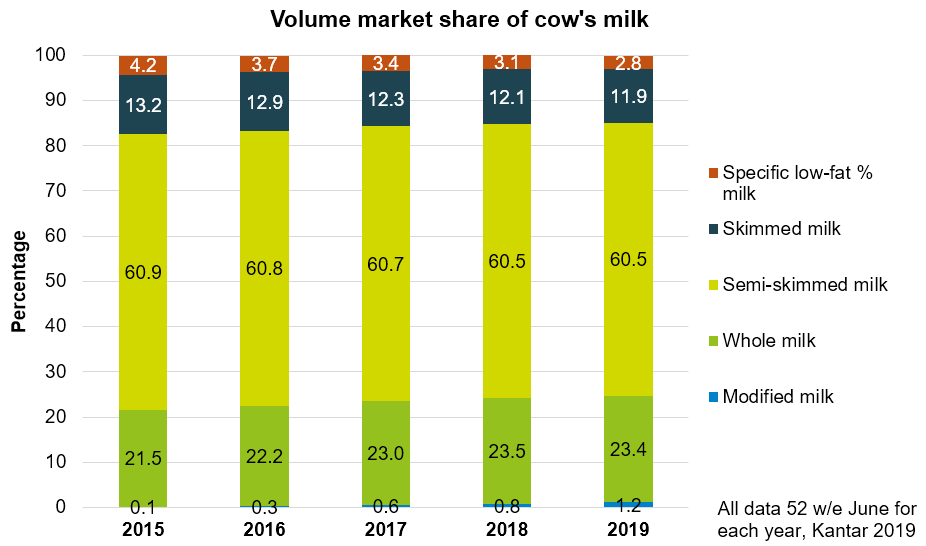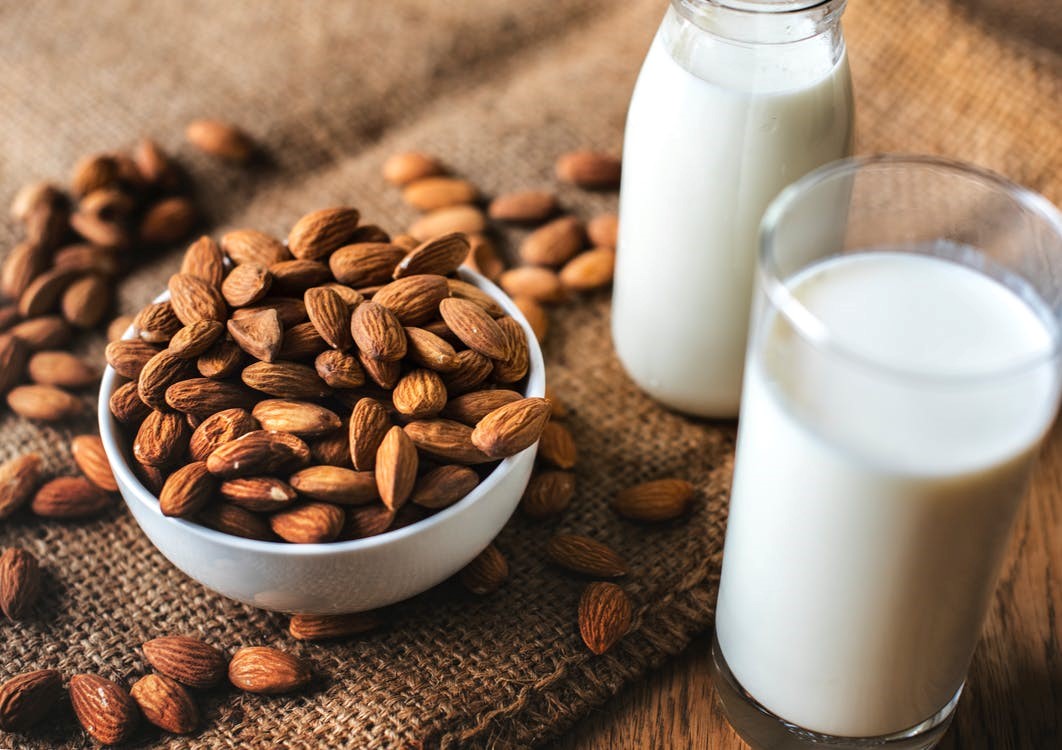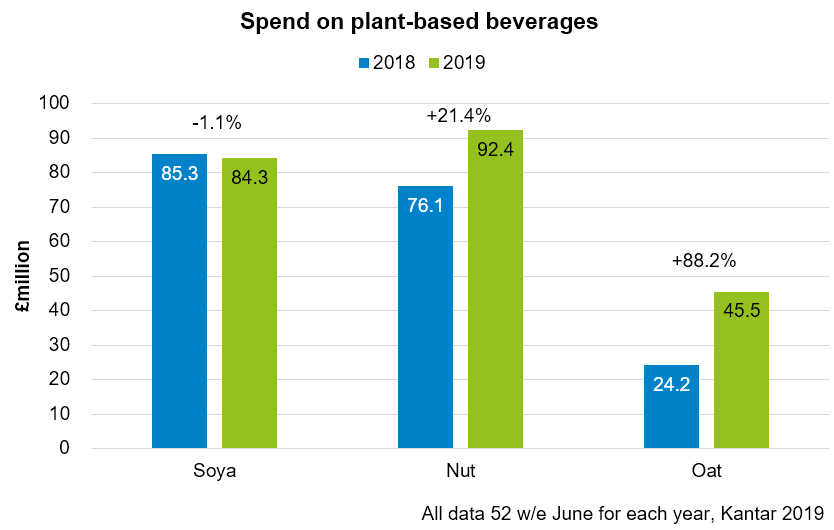Cow's milk still a firm favourite
Thursday, 22 August 2019
With plant-based beverages gaining increasing news attention and popularity among consumers, it’s easy to assume cow’s milk is losing ground in the dairy sector. We take a closer look at the current milk market and the impact of plant-based drinks.
Cow’s milk
Spend on cow’s milk during the last period (52 w/e 16 June 2019) grew by 2.2% , primarily driven by price increases as volume sales remained relatively flat (-0.4%) (Kantar, 2019). Host meals of milk, including breakfast cereals and hot drinks like tea, have been struggling of late, while drinking milk has also faced pressure.
While semi-skimmed milk still occupies the largest share of cow’s milk volume sales (60.5%), over recent years, the growing share of whole and modified milk – such as Arla Protein – has eroded this slightly. Skimmed and specific low-fat milk have also seen losses of volume share, greater than that of semi-skimmed milk (Kantar, 52 w/e 16 June 2019).

Organic milk has been in gradual growth over the period, with the segment now accounting for 2.8% volume share of the total cow’s milk market. Growth has come from existing shoppers buying more per trip, rather than organic products attracting new customers. This has meant that despite relatively flat prices, the sales value of organic milk has risen by 2.6% for the period (Kantar, 52 w/e 16 Jun 2019).
Plant-based beverages
Plant-based beverages continue to be a dynamic sector, remaining in double-digit growth for the latest period. Spend in the category for the 52 weeks to 16 June 2019 totalled £269.4 million, up 18% on the year before, according to Kantar. Such growth is testament to innovative branding and marketing, increasing shopper penetration by 9.1 percentage points on the year to 28.9% of GB households. New entrants such as nut and oat drinks are also widening the reach and appeal of the sector.

Indeed, long-established plant-based drinks such as soya are losing market share to these new entrants, with nut-based beverages overtaking the market value of soya by £8 million in the 52 weeks to 16 June 2019. Oat-based options have also shown substantial growth, with a market value now equal to more than half of that of soya. These newer options – particularly those that are oat-based – may be starting to address consumer concerns over the potential environmental footprint of other plant-based drinks, especially in terms of water use.

Despite the noise around plant-based beverages, they still occupy a fraction of the total liquid milk category, representing 4.4% volume share of the total market (Kantar, 52 w/e 16 June 2019).
The flat volume growth of cow’s milk and the continued growth of plant-based drinks suggest that shoppers are not necessarily switching away from cow’s milk but rather are trying these alternatives as something new. Our Consumer Focus report on plant-based food contains more insight into consumption patterns of dairy alternatives.
Dairy innovation
While some consumers are trying plant-based drinks for the sake of variety, many are doing so for dietary or health reasons, looking for options like lactose-free or reduced-fat milk. Milk processors are innovating to meet these health needs, including Arla with their Lactofree and B.O.B (Best of Both, having the fat content of skimmed milk but the taste of semi-skimmed) milks.
Other consumer health needs, such as higher protein content for post-workout recovery, or added vitamins and minerals for consumers with growing children, are other areas where cow’s milk is innovating. Products such as Dale Farm’s Milk Plus and Arla’s BIG and Protein milks are good examples of milk geared to target these requirements.
Functionality is also an important area where liquid milk can adapt. Developing milk properties like consistency and foaming are ways to add value and broaden appeal. Brades Farm in Lancashire, for example, has developed a unique barista milk from Jersey cows that has particular foaming and compositional properties suited for latte art.

While cow’s milk remains a household staple, the innovation and subsequent growth of plant-based drinks is something that the dairy industry is learning from. Functional and nutritional innovation of cow’s milk can show how a commoditised product is being tailored to add value and appeal to the specific needs of today’s consumer. Read our article, “The future of milk”, for more information on dairy innovation.


